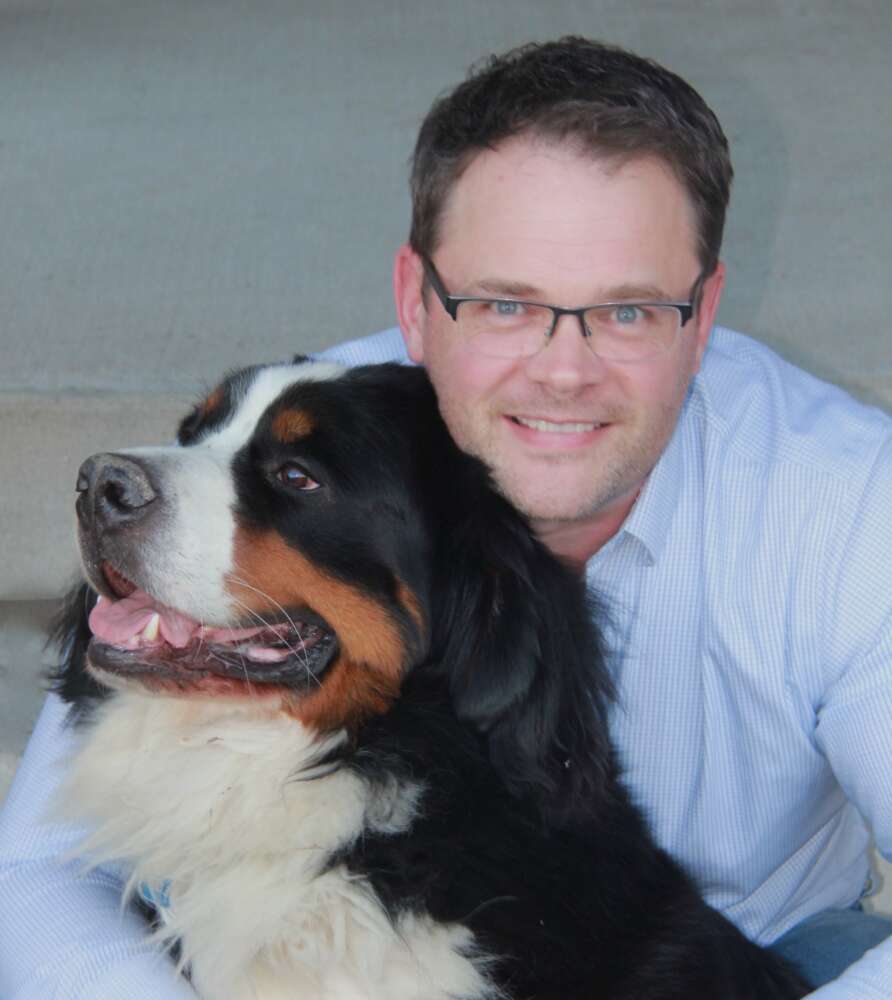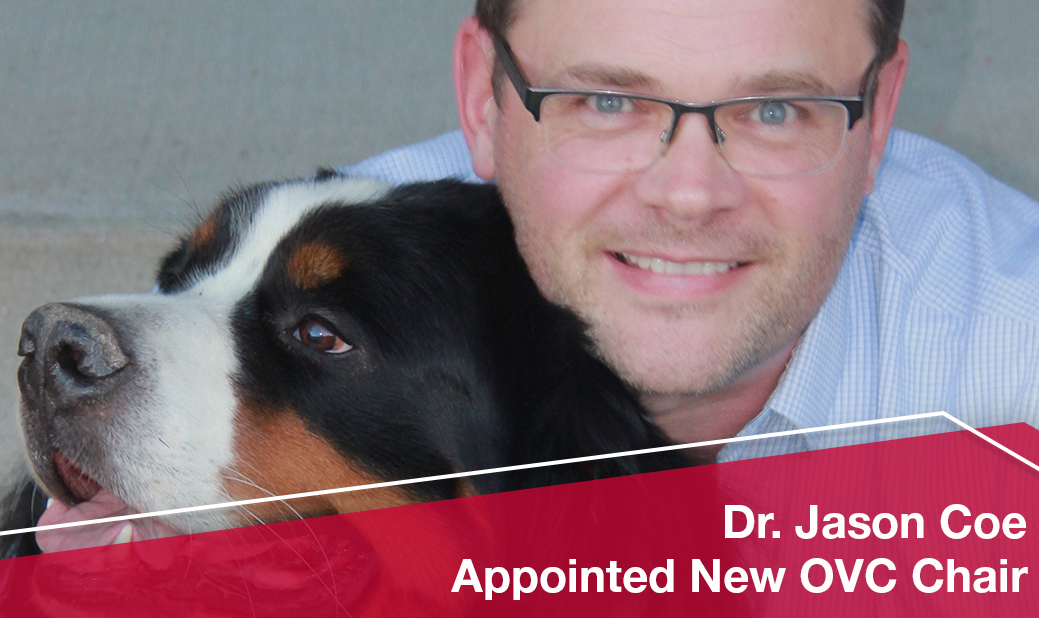
Improving lives of pets, veterinary clients and veterinary teams through communication and relationship-building is the goal of a new $1-million chair awarded at the University of Guelph.
Believed to be the first of its kind worldwide, the new VCA Canada Chair in Relationship-Centred Veterinary Medicine will be held by Dr. Jason Coe, a leading expert in veterinary clinical communications at U of G’s Ontario Veterinary College (OVC) and a professor in the Department of Population Medicine.
The new position will foster research and teaching in communication and relationship-building to improve the health of companion animals. Its holder will also develop new practice models for more sustainable business operations and enhanced mental health and well-being for veterinary teams.
Research has shown that these teams suffer higher levels of stress, burnout, depression, anxiety and suicidal ideation than among the general public.
The chair is supported by a gift from VCA Canada based in Calgary, which runs more than 100 veterinary hospitals across the country. VCA Canada is part of Mars Veterinary Health, a global division of Mars Petcare.
“Creating a healthy and vibrant professional landscape will ensure a better world for pets, their families and veterinary care providers,” said Dr. Craig Mosley, national medical director, specialty medicine, for VCA Canada and an OVC graduate. “We’re excited to collaborate with the OVC as we work together to shape the future of our profession.”
OVC dean Dr. Jeff Wichtel said the gift comes at a “critical inflection point” in veterinary medicine, with growing urbanization, changing veterinarian and consumer demographics, standards of care and public perceptions of the veterinary profession.
“With this chair and this remarkable leadership gift from VCA Canada, we have an opportunity to make a real difference for veterinary teams – and the clients and pets they serve – by providing evidence-based solutions to their most urgent challenges,” said Wichtel.
“Our goal at OVC is to provide our student veterinarians with the very best possible training in the world, so that they can begin their careers with confidence. VCA Canada, as a future employer for some of our graduates, shares our vision of a more sustainable veterinary profession.”
Foster education in relationship-building to improve veterinary care
Besides looking at how veterinary communication has changed during the pandemic, the five-year chair will examine ways to support long-term relationship-building among clients and veterinary team members, and how to incorporate new research in the field into practice and teaching.
“I’m excited about this new chair,” said Coe, a 2001 DVM grad who joined the OVC faculty in 2008 after completing a PhD in veterinary clinical communication.
“The foundation of the veterinary profession is relationships — between the client and the animal, between the client and members of the veterinary team, and between veterinary team members. Communication and relationships cross everything we do.”
That’s become extra apparent during the COVID-19 pandemic. Veterinary teams face “front-line” challenges including added stress and potential for burnout, said Coe.
“The pandemic has dramatically changed the way veterinarians and clients are interacting and communicating,” he said.
To keep people safe while ensuring high-quality patient care, clinicians often still see companion animals for examinations, but client communication now occurs largely online or by phone. These safety measures can add anxiety and uncertainty for both practitioners and clients.
“You lose a lot of non-verbal communication you relied upon previously to engage with and read clients. As a result, practitioners need to be more intentional about verbal communication.”
Coe said the new chair will enable him and other OVC researchers to study those interactions and improve patient care and veterinary education during and beyond the pandemic.
“We can learn best practices for virtual care and share those with the veterinary profession,” he said.
In related work, he will examine best practices for integrating evidence-based practices, including artificial intelligence and machine learning into the delivery of veterinary medicine.
Coe also plants to study ways to strengthen and support relationships among veterinary team members to enhance job satisfaction and reduce stress among practice teams.
“The Ontario Veterinary College is one of the leading research centres in clinical veterinary communication in North American and internationally,” said Coe. He said the new chair will enable the college to build on that reputation to further support the veterinary profession.
He also intends to incorporate research from the chair into student education at OVC and share results with other veterinary colleges in Canada and abroad.
Communication is already an integral component in teaching throughout the four-year DVM curriculum. In 2000, OVC became the first veterinary school in North America to include clinical communication as a core competency across its DVM program.
The new VCA Canada chair will connect with other recent OVC initiatives intended to strengthen companion animal care, including the Kim and Stu Lang Community Healthcare Partnership Program launched in 2019.
Contact:
Dr. Jason Coe
jcoe@uoguelph.ca
